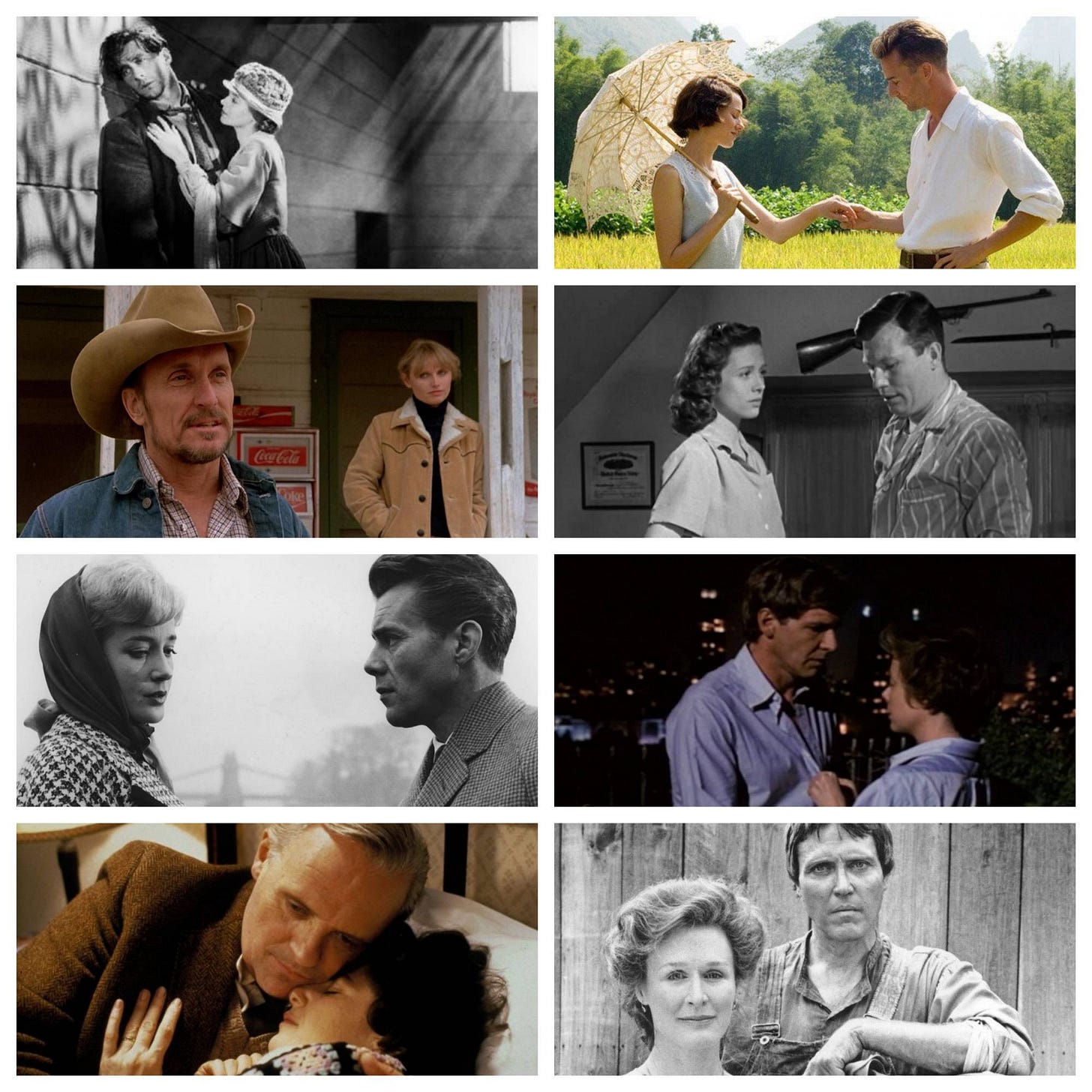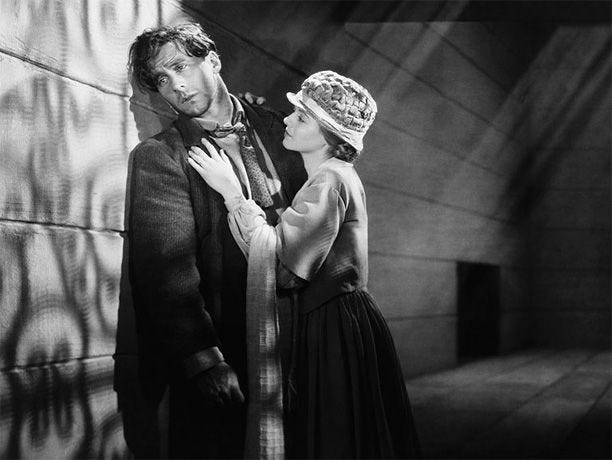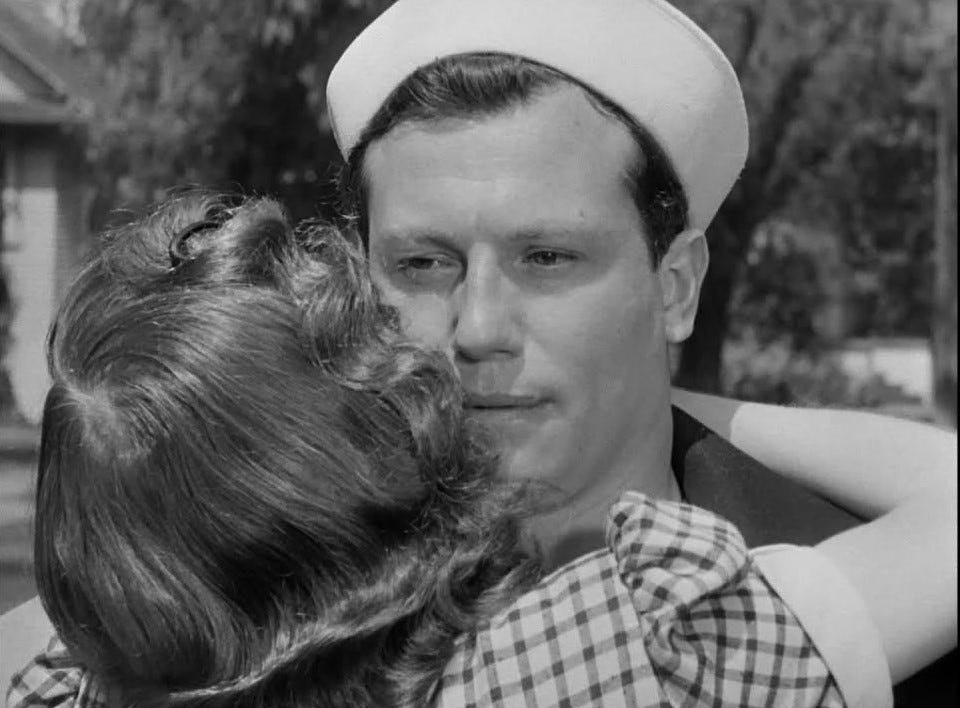Marriage in Ten Movies
Portraits of sorrow and love
If you’re a new reader, welcome and thanks so much for the support! Today I’m taking a break from Op-Eding and Cultural Discoursing with an overdue treat for paid readers, in which I revisit one of my first loves as a writer: film criticism. Like all budding young critics, I was enthusiastically bad at this until I became half-way decent, mostly by reading lots of Roger Ebert reviews in hopes that his essence would somehow rub off on me. Who am I kidding, I still do that.
Anyway, since we’re in the High Holy Month of Pride, as well as the 10th anniversary year of the court decision that found a right to gay marriage hiding in the penumbra of our constitution, it seems like a good time to celebrate some movies about marriage. (As in, marriage marriage. As in, the only thing anyone recognized as a marriage until five seconds ago.) I’m not going to claim that my choices all rank among the greats as movies, but they’re all movies I like, and they all say something true about marriage. Stylistically, they vary widely, but if there’s a common thread, I think I’ve always been drawn to romances shaped by tragedy. Not the mawkish kind, but the grownup, honest kind, where redemption is possible but hard-won.
You might wonder why some famous flicks are missing here. It’s probably because either a) I’m trying to leave a generous spotlight for some more obscure flicks, or b) I’m still an amateur cinephile with embarrassing gaps in my self-education, and this is your chance to enlighten me in the comments, or c) I’m mostly avoiding films about divorce, though I guess a good divorce film can in its bitter way also say true things about marriage. (I would recommend Richard Linklater’s Boyhood as a relatively gentle but still painful movie in that vein.) I’m also mostly not selecting movies about a remarriage after divorce, with a couple exceptions that were just too notable to ignore.
If you have a cherished film in the spirit of these titles, let me know so that I can enrich my watchlist. Meanwhile, I hope this enriches yours. You can also browse some of my other writing on movies here.
Sunrise: A Song of Two Humans (1927)
“They used to be like children, carefree, always happy and laughing…”
This silent film is in essence a fairytale, and as such it requires some suspension of disbelief, though there’s nothing strictly magical in it. The unnamed Man and Wife are archetypes, as is the dark Woman of the City who threatens to destroy them. A 21-year-old Janet Gaynor radiates girlish innocence, while George O’Brien delivers an unnerving tour de force as a simple farmer completely in thrall to his passions, for better or worse. If she is a type of Snow White, he is half Prince, half Huntsman. The film was made in Hollywood but directed by the German expressionist F. W. Murnau, who gives the work its sense of unreality. High drama is punctuated by absurd comedy, as the tormented couple wanders through an alien cityscape in search of their lost love. It’s like a medieval tapestry, packed with odd little characters and bits of color all around the edges of the saga playing out in the foreground. The titles are sparing, with virtually no dialogue. This is a visual poem. How it will end, the viewer truly doesn’t know until it ends. I couldn’t bear the suspense and looked ahead, then wished I hadn’t, so I will do you all the courtesy I denied myself and say no more. Watch the full movie free here:
The Best Years of Our Lives (1946)
“I had a dream. I dreamed I was home. I’ve had that same dream hundreds of times before. This time I wanted to find out if it’s true. Am I really home?”
Made in the same year as It’s a Wonderful Life, this film earned the critical acclaim that eluded that film in its time, though it’s now fallen into relative obscurity. Capra’s masterpiece is deservedly remembered as the greater work, but this is still worth revisiting. It marked Hollywood’s turn from war propaganda to post-war realism, believably weaving together the stories of three veterans and the women who help them heal. Al Stephenson (Fredrich March) is 20 years married and many fewer years sober. Fred Derry (Dana Andrews) is losing his marriage and destined to fall in love with Stephenson’s daughter. And Homer Parrish (Harold Russell) can’t believe his high school sweetheart will still want a man with hooks for hands. The film opens with the three men’s first meeting, discovering they’re all bound for the same small town. Homer tries to disguise his fears with valiant optimism, while the two older men share a sympathetic look and reassure him that his sweetheart sounds like “a swell girl.” As it turns out, they’re right.
Keep reading with a 7-day free trial
Subscribe to Further Up to keep reading this post and get 7 days of free access to the full post archives.




